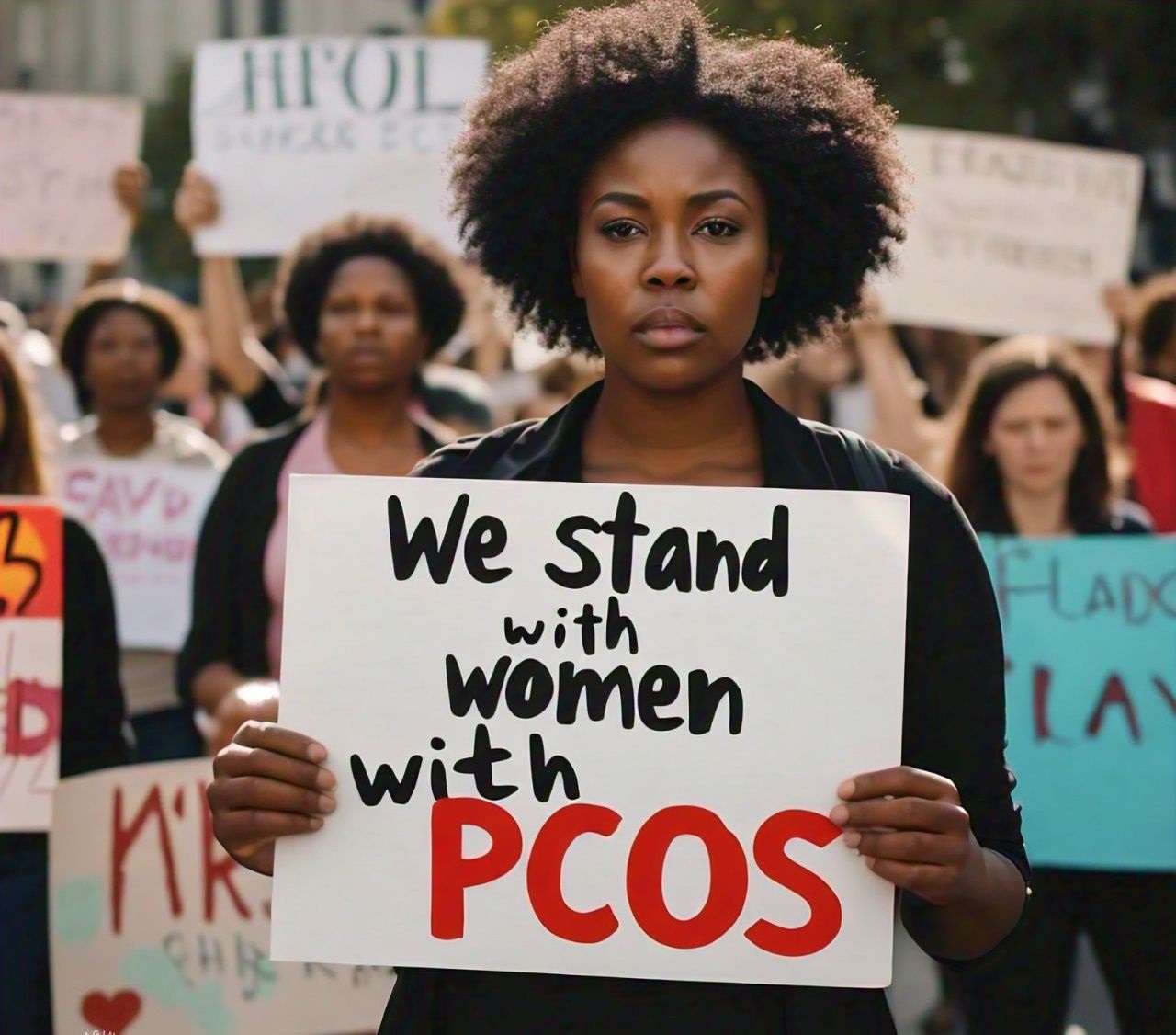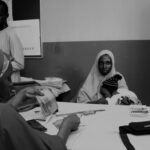Ekwulonu Medlyn’s menstruation started early, while she was still in primary five. But at 14, during her time in a boarding secondary school, her period suddenly disappeared for months, leaving her and her family confused and worried.
After reporting the issue to the school clinic, the clinic authorities advised her parents to take her to a hospital for proper investigation. Initially, the doctor attributed the problem to stress or a change in environment and prescribed antibiotics. However, after months with no improvement, Medlyn returned to the hospital, where more tests were conducted, including an ultrasound. The results revealed that she had ovarian cysts.
“It showed that I had more androgen than normal female hormones, confirming I had Polycystic Ovarian Syndrome (PCOS),” Medlyn recalls. “But the doctor just said, ‘Go and relax. When it’s time for you to give birth, we’ll address it.'”
What is PCOS?
According to the World Health Organisation (WHO), Polycystic Ovarian Syndrome (PCOS) is a common hormonal disorder that affects women of reproductive age, often resulting in infertility. WHO estimates that about 13% of women in this age group are affected by PCOS, but 70% of cases go undiagnosed.
While Medlyn’s doctor focused on her potential fertility issues, she was more concerned about other symptoms: excessive hair growth, rapid weight gain and severe anxiety. Despite her parents’ worries, the doctors only prescribed contraceptives and metformin, medications her father refused after discovering the potential risks associated with contraceptive use, including a higher risk of breast, cervical, and liver cancers.
“My abdomen was getting larger, and I was just growing fatter,” Medlyn shared. “I went to the gym for six months but only lost one kilogramme.” Determined to understand her condition, Medlyn began researching about PCOS.
Similarly, Ajibola Bamgbose experienced PCOS symptoms from the age of nine but did not give them much attention, even welcoming the absence of painful and costly menstrual cycles. However, after being diagnosed in early 2024, a doctor suggested she consider starting a family soon—reflecting the common misconception that PCOS should only concern women regarding fertility.
PCOS in Nigeria
In Nigeria, research suggests that between 13.8% and 18.1% of women of reproductive age may have PCOS. The condition affects one in every six women dealing with infertility. However, the condition remains largely misunderstood and underdiagnosed
Qudus Lawal, a consultant obstetrician and gynaecologist at Edo’s Irrua Specialist Teaching Hospital, explains that PCOS is a syndrome, meaning it manifests in various ways. “The development of androgenic symptoms—such as facial hair growth, acne, and weight gain—varies in each woman, making diagnosis challenging,” Lawal says. “But the most common symptom is menstrual irregularity, which prevents ovulation and thus pregnancy.”
Personal Struggles
For Medlyn, infertility is not the main issue—her biggest challenge is controlling her weight. “My mother has tried everything to help me lose weight,” she says, “but I remind her that detoxing isn’t necessary because my kidneys already do that naturally.”
Bamgbose, on the other hand, struggles with “brain fog”—a symptom that makes it difficult to concentrate or remember things clearly. As a public speaker and conflict resolution expert, this symptom has significantly affected her work. “I miss words during speeches, and sometimes I feel paranoid without reason,” she admits.
Brain fog makes it challenging to access thoughts and plans, often exacerbating anxiety. This, coupled with other mental health challenges like depression and low self-esteem, makes life with PCOS particularly difficult for many women.
Medlyn and Bamgbose also highlight the high cost of managing PCOS. From expensive laboratory tests to costly medications, the financial burden is heavy. Additionally, the dietary requirements to manage PCOS are often expensive and hard to maintain.
Turning Struggle into Advocacy
Despite these challenges, both Medlyn and Bamgbose have found support from friends and family, which helps them cope. They are also transforming their experiences into advocacy.
In Nigeria, stigma surrounding PCOS persists, largely due to a lack of awareness. Bamgbose notes, “People don’t have enough information, which is why they can stigmatise others. And we don’t talk about it enough.”
She is working to bridge that knowledge gap through social media, where she has found a community of women who share her experiences. Similarly, Medlyn has embraced advocacy, using her platform as the “PCOS Advocate” on social media. She also organises physical events in Nigeria to raise awareness.
“We’re going to secondary schools to educate girls about PCOS,” she says. “It’s a personal project, and we’re partnering with the Nigerian Medical Students Association to do this during PCOS Awareness Month.”
Medlyn is particularly passionate about reaching secondary school girls because that’s when symptoms often start manifesting. Many girls, she notes, have their menstruation irregularities blamed on infections or suspected pregnancy. By educating these young women early, she hopes to shift the narrative and empower a generation to be more informed.
Medlyn’s outreach also includes one-on-one support. More than 30 women with PCOS have reached out to her directly after seeing her posts, and she provides them with advice and encouragement. She knows firsthand that people with PCOS are at a higher risk of mental health struggles, including an eightfold increase in the risk of suicide attempts. By fostering a supportive community, Medlyn is helping others navigate the challenges of PCOS and find hope.
As a medical student, she plans to contribute to PCOS research in Nigeria, addressing the current gaps in understanding and treatment.
Ekwulonu Medlyn experienced sudden absence of menstruation at 14, leading to a hospital visit where she was diagnosed with Polycystic Ovarian Syndrome (PCOS), a common but often undiagnosed hormonal disorder affecting women of reproductive age. While her doctor downplayed her concerns, focusing on fertility, Medlyn was troubled by other symptoms like excessive hair growth and rapid weight gain. PCOS in Nigeria affects 13.8% to 18.1% of women, yet it remains largely misunderstood. Medlyn, along with Ajibola Bamgbose, who also has PCOS, faces challenges such as brain fog and high management costs.
Despite personal struggles, Medlyn and Bamgbose have become PCOS advocates. They aim to educate and raise awareness, combating the stigma associated with PCOS in Nigeria. By leveraging social media and organizing community events, they strive to inform young girls about the condition's symptoms to prevent misconceptions. Medlyn's advocacy extends to individual support, emphasizing mental health concerns linked to PCOS, and she has aspirations to contribute to research in the field as a medical student. These efforts highlight the importance of addressing PCOS comprehensively and fostering a supportive community.






